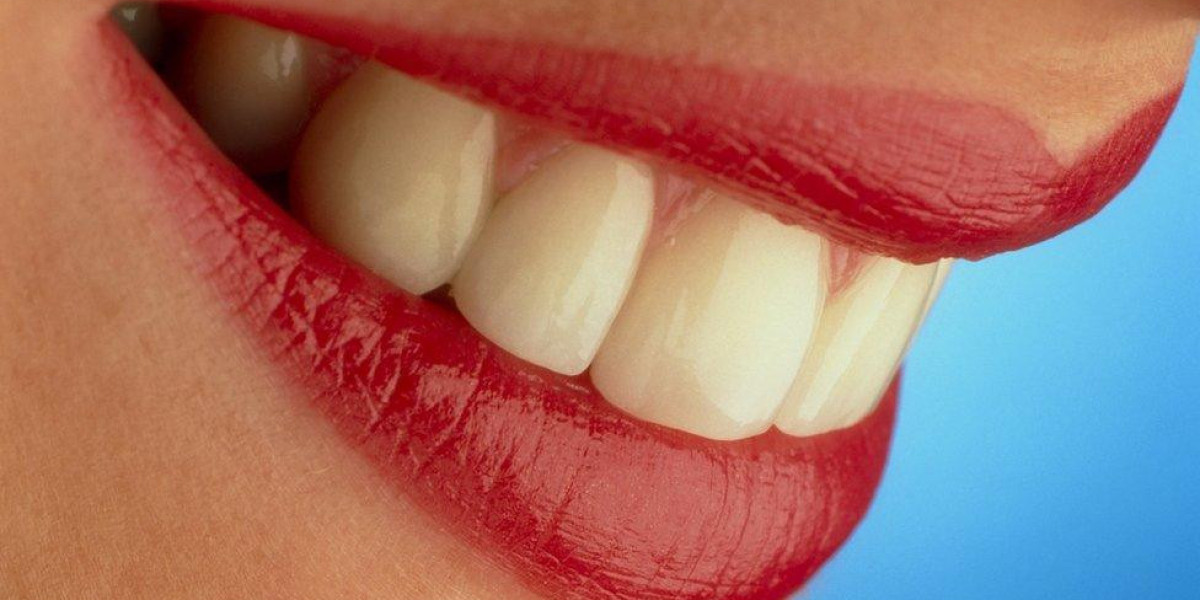Teeth whitening is a popular cosmetic dental procedure for achieving a bright, white smile. However, when it comes to dental crowns and veneers, many people wonder if whitening treatments are effective on these dental restorations. If you have crowns, veneers, or other dental work, you might be curious whether they can be whitened like your natural teeth. This article will explore the effects of teeth whitening in Dubai on crowns and veneers, the factors to consider, and alternative options for maintaining a beautiful, bright smile.
Understanding Crowns and Veneers:
What Are Crowns and Veneers?:
Crowns:
- Crowns are custom-made caps that cover damaged or decayed teeth, restoring their strength and appearance. They can be made from materials like porcelain, ceramic, or metal, with porcelain being the most popular choice for its natural appearance.
- Crowns are often used for teeth that have been heavily damaged or weakened by decay, fractures, or large fillings.
Veneers:
- Veneers are thin, custom-made shells placed over the front surface of the teeth to enhance their appearance. They are typically made from porcelain or composite resin.
- Veneers are used to address cosmetic concerns like discoloration, misalignment, or chips, and are often a great solution for patients looking to enhance their smile.
Why Teeth Whitening Doesn’t Work on Crowns and Veneers:
Material Properties:
- Both crowns and veneers are made from materials that are not porous, unlike natural teeth. Because of this, they do not absorb whitening agents the same way that tooth enamel does. Whitening treatments typically work by penetrating the enamel to break down stains and discoloration, but crowns and veneers do not react in the same way.
Permanent Color of Restorations:
- The color of crowns and veneers is permanent once they are placed. Unlike natural teeth, which can lighten or darken with whitening treatments, the shade of these restorations remains the same throughout their lifespan.
- While some whitening products may help remove surface stains on these materials, they cannot lighten the underlying color.
Possible Effects of Whitening on Crowns and Veneers:
Surface Staining:
- While teeth whitening won’t change the color of your crowns and veneers, it can help reduce surface stains caused by food, drink, or tobacco.
- Professional cleaning by a dentist can effectively remove surface staining, making your restorations look fresher.
Discoloration in Natural Teeth:
- One of the most noticeable issues when whitening teeth is that natural teeth may become lighter, while crowns and veneers maintain their original shade. This can create a mismatch between your natural teeth and dental work, leaving you with an uneven smile.
Alternative Options for Brightening Your Smile:
Whitening Your Natural Teeth:
Professional Teeth Whitening:
- While whitening doesn’t affect crowns and veneers, you can still whiten your natural teeth to achieve a brighter smile. Professional teeth whitening treatments provide the most effective results and can help you achieve a noticeably whiter smile without affecting your restorations.
- If you have crowns or veneers, discuss the timing of your whitening treatments with your dentist to ensure that your natural teeth are whitened before getting restorations.
Home Whitening Kits:
- At-home whitening products, such as strips, gels, and trays, can also help whiten your natural teeth. While they may take longer to show results than professional treatments, they are still an effective option for brightening your smile.
- Keep in mind that these kits may not be as powerful as professional treatments, so you might need to use them consistently for several weeks to see noticeable results.
Alternative Whitening Methods for Crowns and Veneers:
Polishing:
- If your crowns or veneers have accumulated surface stains, professional polishing treatments can help restore their shine. This can be done by your dentist and will not affect the color of your restorations but will make them look cleaner and fresher.
- Polishing can also help remove any minor discoloration that may have developed on the surface of your dental work.
Replacement of Older Restorations:
- If your crowns or veneers have become discolored or are no longer aesthetically pleasing, replacing them with new restorations may be the best option. Your dentist can match the new crowns or veneers to your newly whitened natural teeth, ensuring a uniform and harmonious smile.
- This is particularly useful if you’ve undergone whitening treatments and your natural teeth have lightened significantly compared to your existing restorations.
Maintaining the Brightness of Your Smile:
Regular Oral Hygiene:
- Maintaining proper oral hygiene is essential for keeping both your natural teeth and crowns or veneers looking bright. Brush and floss regularly to prevent the buildup of plaque and surface stains.
- Use a whitening toothpaste that is gentle enough to clean both your natural teeth and your dental restorations without causing damage.
Avoiding Staining Foods and Beverages:
- To keep your smile looking its best, limit the consumption of foods and drinks that can stain both natural teeth and restorations. Coffee, tea, red wine, and tobacco products can cause discoloration over time.
- If you do consume staining foods or drinks, rinse your mouth with water afterward to minimize their impact on your teeth.
Professional Cleanings:
- Regular visits to your dentist for professional cleanings can help keep your smile bright. Your dentist can remove plaque buildup, tartar, and surface stains from both your natural teeth and restorations.
- Professional cleaning is essential for the long-term appearance of your crowns and veneers, as it helps prevent discoloration and keeps your smile looking fresh.
Conclusion:
While teeth whitening treatments are effective at brightening natural teeth, they do not work on crowns and veneers due to the materials used in these restorations. If you're looking to achieve a uniform smile, it’s essential to whiten your natural teeth before placing crowns or veneers. For those with existing crowns or veneers, regular polishing, cleaning, and maintenance can help keep them looking bright. If you notice a significant difference in color between your natural teeth and dental work after whitening, consult your dentist about replacement options to restore a harmonious smile.
Readmore about: Teeth Whitening for Brides: How to Achieve the Perfect Smile









